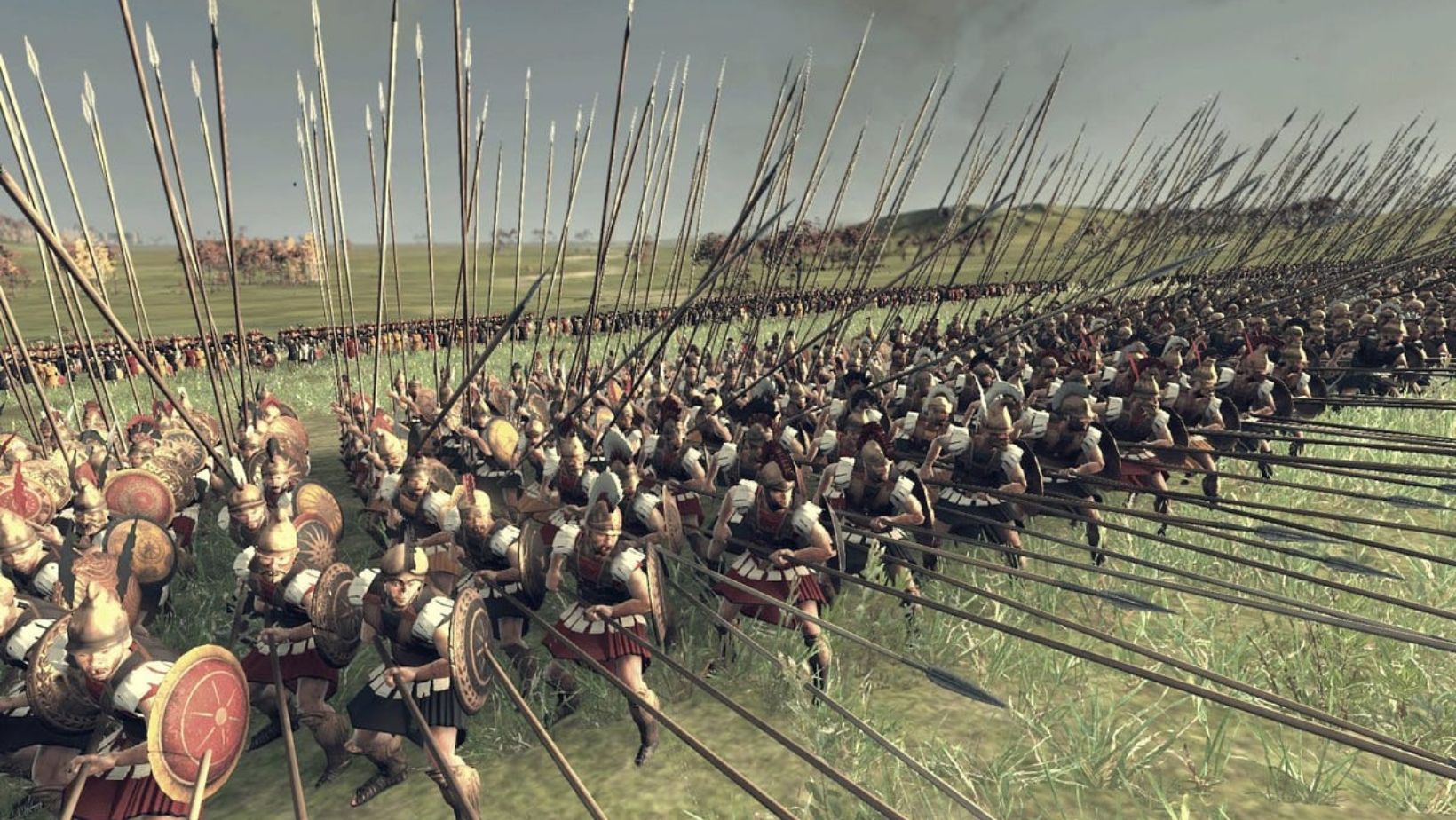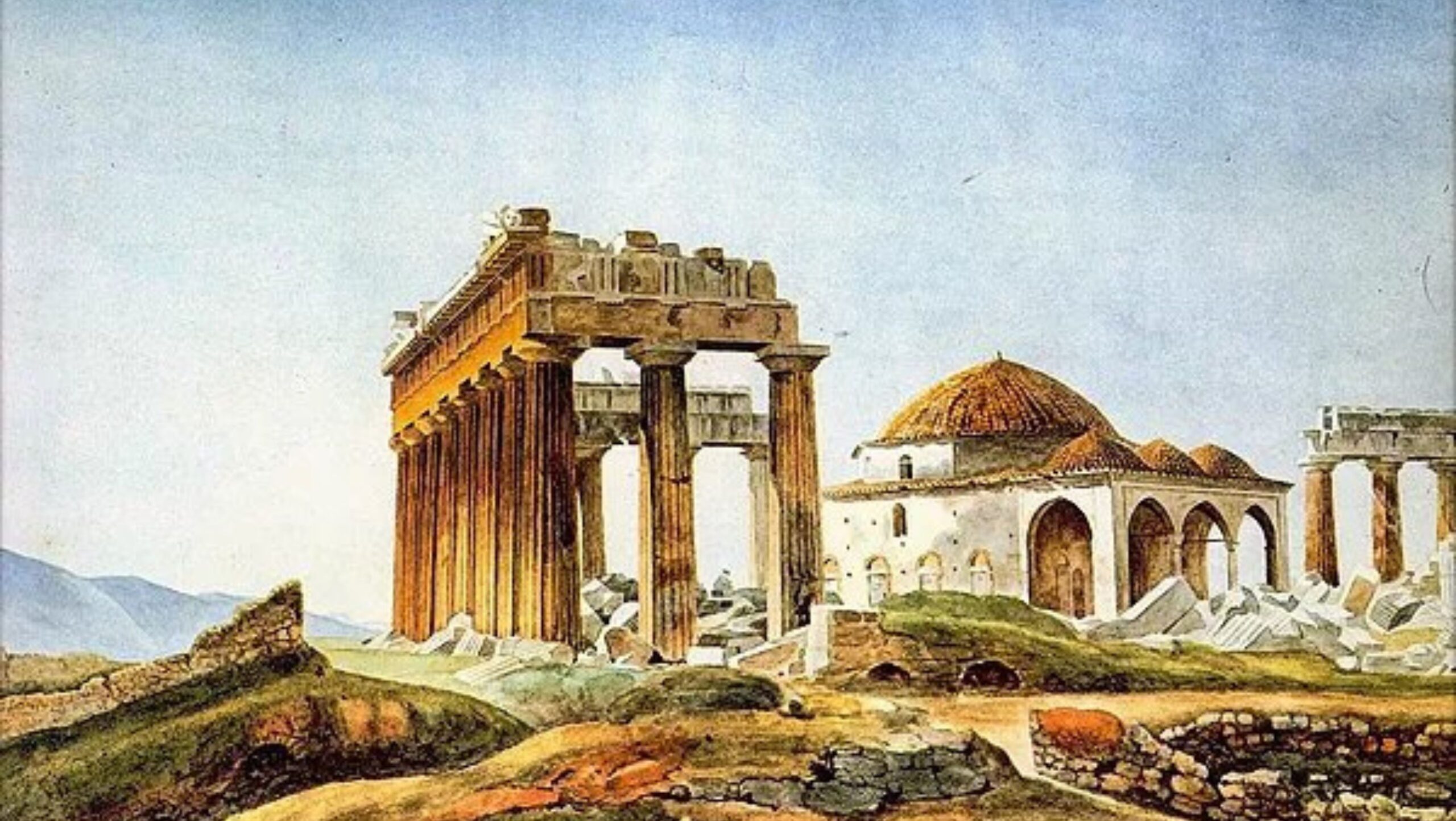The Impact of the Impact of Macedonian Wars on Rome was a series of battles that rocked the ancient world. Rome and Macedon, two powerhouses of their time, clashed in a struggle for dominance. But this was more than just a fight for territory – it was a defining historical moment.
The impact of these wars on Rome was nothing short of transformative. It reshaped Roman society’s very fabric, from how they fought to how they governed. Buckle up because we’re about to explore how deep these changes went.
Table Of Contents:
- Overview of the Macedonian Wars
- Impact on Roman Military Strategy and Tactics
- Political Consequences for the Roman Republic
- Economic Effects on Rome and Its Territories
- Cultural Exchange and Hellenization of Rome
- Legacy of the Macedonian Wars on Roman History
- Conclusion
Overview of the Macedonian Wars: Impact of Macedonian Wars on Rome
The Macedonian Wars were a series of conflicts between the Roman Republic and various Greek kingdoms, primarily Macedon, that took place between 215 BCE and 148 BCE. These wars had a profound impact on the course of world history, as they marked the rise of Rome as a dominant power in the Mediterranean region and beyond.
Timeline of the Macedonian Wars
The wars began with Rome’s involvement in the First Macedonian War (215-205 BCE) and concluded with the Fourth Macedonian War (150-148 BCE), which resulted in the annexation of Macedon as a Roman province. The conflicts spanned over six decades, with brief periods of peace in between.
Key Players Involved: Impact of Macedonian Wars on Rome
The main participants in the Macedonian Wars were the Roman Republic, the Kingdom of Macedon, and various Greek city-states and leagues. Key figures included Philip V of Macedon, Perseus of Macedon, and Roman generals such as Titus Quinctius Flamininus and Lucius Aemilius Paullus Macedonicus.
Reasons for the Conflicts
The Macedonian Wars were primarily driven by Rome’s desire to expand its influence in the eastern Mediterranean and to prevent the rise of a powerful Greek state that could challenge its dominance. The wars were also fueled by the complex web of alliances and rivalries among the Greek states, as well as by the ambitions of Macedonian kings to assert their power in the region.
Impact on Roman Military Strategy and Tactics: Impact of Macedonian Wars on Rome
The Macedonian Wars had a significant impact on Roman military strategy and tactics. The Roman army had to adapt to the challenges posed by the formidable Macedonian phalanx and the terrain of the Greek peninsula.
Adoption of Macedonian Phalanx

The Roman army adapted elements of the Macedonian phalanx formation, which involved a tight formation of soldiers armed with long spears called sarissas. While the Romans did not fully adopt the phalanx, they incorporated some of its tactics and equipment into their own military system, such as the use of the pilum (javelin) and the scutum (shield).
Improvements in Roman Warfare: Impact of Macedonian Wars on Rome
The Macedonian Wars led to significant improvements in Roman warfare, particularly in the areas of logistics, engineering, and naval operations. The Romans developed more efficient supply lines, built roads and bridges to facilitate troop movements, and constructed fortified camps to protect their armies. They also expanded their naval capabilities, building larger and more advanced warships to counter the Macedonian fleet.
Lessons Learned from Battles
The battles fought during the Macedonian Wars provided valuable lessons for the Roman military. The Romans learned the importance of flexibility and adaptability in the face of different enemy tactics and terrain. They also recognized the need for effective leadership and discipline among their troops, as well as the value of intelligence gathering and strategic planning.
Political Consequences for the Roman Republic: Impact of Macedonian Wars on Rome
The Macedonian Wars had far-reaching political consequences for the Roman Republic. The conflicts led to a shift in the balance of power, the rise of influential generals, and internal struggles and reforms within the republic.
Shift in Balance of Power
The Macedonian Wars marked a significant shift in the balance of power in the Mediterranean world. The defeat of Macedon and the weakening of other Greek states left Rome as the dominant power in the region. This shift had far-reaching consequences for the Roman Republic, as it now had to contend with the challenges of governing a vast empire and managing complex foreign relations.
Rise of Influential Generals
The Macedonian Wars saw the rise of influential Roman generals, such as Titus Quinctius Flamininus and Lucius Aemilius Paullus Macedonicus, who gained significant political power and prestige through their military successes. These generals played a crucial role in shaping Roman foreign policy and decision-making processes, sometimes leading to tensions with the Roman Senate and other political institutions.
Internal Struggles and Reforms: Impact of Macedonian Wars on Rome
The aftermath of the Macedonian Wars witnessed internal struggles and reforms within the Roman Republic. The influx of wealth and resources from conquered territories led to growing economic inequality and social tensions, as well as political rivalries among the elite. These challenges prompted various attempts at reform, such as the Gracchi brothers’ efforts to redistribute land and address the plight of small farmers.
Economic Effects on Rome and Its Territories: Impact of Macedonian Wars on Rome
The Macedonian Wars had significant economic effects on Rome and its territories. The conflicts led to the acquisition of new territories, an influx of wealth and resources, and the expansion of trade networks.
Acquisition of New Territories
The Macedonian Wars resulted in the acquisition of new territories for the Roman Republic, including Macedon, parts of Greece, and regions in Asia Minor. These territories brought a significant influx of wealth and resources, such as precious metals, agricultural products, and skilled labor, which contributed to the growth of the Roman economy.
Influx of Wealth and Resources: Impact of Macedonian Wars on Rome
The conquest of Macedon and other Greek states during the Macedonian Wars led to a massive influx of wealth and resources into the Roman Republic. This included the seizure of royal treasuries, the exploitation of rich mines and agricultural lands, and the enslavement of skilled workers and artisans. The increased wealth had both positive and negative effects on Roman society, fueling economic growth but also exacerbating social inequalities.
Expansion of Trade Networks
The Macedonian Wars facilitated the expansion of Roman trade networks in the eastern Mediterranean. With the defeat of Macedon and the weakening of other Greek states, Rome gained control over key trade routes and ports, such as the Aegean Sea and the Adriatic coast. This allowed Roman merchants to establish new commercial ties and access valuable goods from the East, such as spices, textiles, and luxury items.
Cultural Exchange and Hellenization of Rome: Impact of Macedonian Wars on Rome

The Macedonian Wars led to a significant cultural exchange between Rome and the Greek world, resulting in the Hellenization of Roman society. This process had a profound impact on Roman art, literature, philosophy, and way of life.
Adoption of Greek Art and Architecture
The Macedonian Wars exposed the Romans to the rich cultural heritage of the Greek world, leading to a significant adoption of Greek art and architecture. Roman elites began to commission Greek-style sculptures, frescoes, and mosaics to decorate their homes and public spaces. The influence of Greek architecture can be seen in the development of Roman temples, theaters, and other monumental buildings.
Influence on Roman Literature and Philosophy: Impact of Macedonian Wars on Rome
The encounter with Greek culture during the Macedonian Wars had a profound impact on Roman literature and philosophy. Roman authors began to adapt Greek literary genres, such as epic poetry, drama, and history, infusing them with Roman themes and values. Greek philosophical schools, particularly Stoicism and Epicureanism, gained popularity among Roman intellectuals, shaping their worldviews and moral principles.
Fusion of Greco-Roman Traditions
The Macedonian Wars led to a gradual fusion of Greek and Roman cultural traditions, creating a unique Greco-Roman civilization. This fusion manifested in various aspects of Roman life, from religion and mythology to education and social customs. The Roman pantheon absorbed Greek deities, while the Roman educational system incorporated the study of Greek language, literature, and philosophy.
Legacy of the Macedonian Wars on Roman History: Impact of Macedonian Wars on Rome
The Macedonian Wars had a lasting impact on Roman history, laying the foundation for Roman dominance in the Mediterranean world and serving as a precursor to the rise of the Roman Empire.
Foundation for Roman Dominance
The Macedonian Wars laid the foundation for Roman dominance in the Mediterranean world. By defeating Macedon and other Greek states, Rome eliminated its main rivals and established itself as the preeminent power in the region. This dominance would endure for centuries, shaping the course of Roman history and the development of Western civilization.
Precursor to the Roman Empire
The Macedonian Wars can be seen as a precursor to the rise of the Roman Empire. The conquest of Greece and the eastern Mediterranean provided Rome with the resources, knowledge, and confidence to expand its territories further, eventually leading to the creation of a vast empire that stretched from Britain to the Middle East. The lessons learned and the political and cultural changes brought about by the Macedonian Wars paved the way for Rome’s imperial ambitions.
Lasting Impact on Western Civilization: Impact of Macedonian Wars on Rome
The legacy of the Macedonian Wars extends far beyond the boundaries of the Roman Republic. The cultural exchange and Hellenization that occurred as a result of these conflicts had a lasting impact on Western civilization. The fusion of Greek and Roman traditions in art, literature, philosophy, and science laid the groundwork for the development of European culture and thought. The political and legal systems that emerged from the Roman Republic, shaped by the experiences of the Macedonian Wars, would influence the formation of modern democracies and legal codes.
Key Takeaway: Impact of Macedonian Wars on Rome
The Macedonian Wars marked Rome’s rise as a Mediterranean power. They influenced military tactics, politics, and culture. Rome adopted elements of the Macedonian phalanx, expanded its territories and trade networks, gained wealth but faced social tensions. The wars also sparked cultural exchange with Greece, shaping Roman art and philosophy.
Conclusion: Impact of Macedonian Wars on Rome
The Macedonian Wars left an indelible mark on Rome. They transformed the military into a formidable force, reshaped the political landscape, and filled the coffers with newfound wealth. But perhaps most importantly, they opened Rome’s eyes to the wider world and all its possibilities.
The impact of these wars echoed through the centuries, laying the groundwork for Rome’s eventual rise to empire. It’s a testament to the enduring legacy of this ancient conflict and its ability to shape the course of history.
So, the next time you marvel at Rome’s grandeur, remember the Macedonian Wars. Although they were fought over 2,000 years ago, their impact is still felt today.

